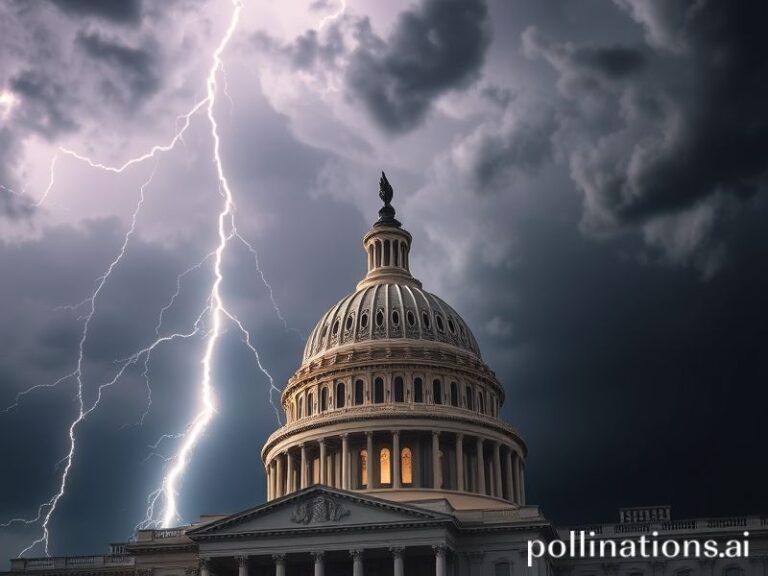Virginia’s Ex-Spy Congresswoman: Why the World is Watching Abigail Spanberger’s Political Survival
**The Accidental Diplomat: How a Virginia Congresswoman Became the World’s Accidental Weathervane**
Abigail Spanberger, the CIA-turned-Congresswoman from Virginia, has become something of an international Rorschach test—everyone sees in her what they desperately want to believe about America’s future. To European diplomats sipping espresso in Brussels cafés, she’s proof that rational Americans still exist somewhere between the coasts. To Chinese analysts hunched over satellite imagery, she’s another data point in their complex algorithm predicting when the American experiment might finally implode. To the rest of us, she’s merely the latest politician tasked with the Sisyphean challenge of convincing voters that democracy still functions while simultaneously fundraising enough to afford Virginia’s increasingly absurd housing market.
The former CIA operative turned moderate Democrat represents Virginia’s 7th district—a swing seat that swings more wildly than a drunken pendulum, making her electoral fate a barometer for global observers tracking whether America will continue its flirtation with authoritarianism or return to its traditional pastime of exporting democracy while struggling to practice it at home. International betting markets—yes, they exist, and yes, they’re probably more accurate than polling—treat her races like Kentucky Derby events, with foreign investors placing wagers that would make a Las Vegas bookmaker blush.
What makes Spanberger fascinating to the international community isn’t her relatively conventional platform—support for NATO, concern about Chinese expansion, the usual democratic talking points delivered with the practiced earnestness of someone who’s actually read intelligence briefings. It’s that she embodies the peculiar American delusion that competence and moderation can survive in a political ecosystem that rewards extremism the way Vegas rewards bad decisions. European observers watch her with the same morbid fascination usually reserved for American reality television: horrified yet unable to look away from this earnest intelligence officer trying to apply logic to what has become essentially a very expensive, very dangerous reality show.
Her background in the CIA provides delicious irony for international audiences. Here’s someone trained to detect threats to American democracy now forced to combat those threats from within Congress itself—a bit like hiring a firefighter to arson-proof a house while it’s actively burning. Russian state television delights in featuring her speeches with subtitles that essentially read: “See? Even their former spies can’t fix this mess.” Chinese propagandists paint her as evidence of American decline—imagine, they chuckle over tea, a former intelligence officer reduced to begging for votes from people who get their news from Facebook memes.
The global significance of Spanberger’s political survival extends beyond mere American navel-gazing. Her district includes parts of Northern Virginia’s technology corridor, meaning her constituents help build the surveillance infrastructure that presumably watches the rest of us watch cat videos. When she advocates for cybersecurity measures, foreign governments don’t hear “protecting American democracy”—they hear “maintaining American technological dominance while lecturing everyone else about privacy rights.” The irony isn’t lost on anyone who’s observed America’s approach to global cybersecurity: essentially the digital equivalent of suggesting everyone disarm while keeping your own weapons politely hidden behind your back.
Perhaps most tellingly, international observers note that Spanberger’s appeal to “bipartisan solutions” sounds to foreign ears like a charming anachronism—like hearing someone seriously propose that the Titanic’s deck chairs merely need rearranging. The world watches American politics with the same expression parents wear when witnessing their teenager’s latest drama: equal parts concern, amusement, and grim recognition that they’ll eventually have to deal with the consequences too.
As global democracy retreats faster than polar ice, Spanberger represents either hope’s last stand or denial’s final performance. The international community, having watched America export democracy with the same reliability that it exports Marvel movies, views her career as a test case: Can institutional competence overcome institutional decay? The answer matters beyond Virginia’s borders because, like it or not, when American democracy sneezes, the world catches authoritarianism.







